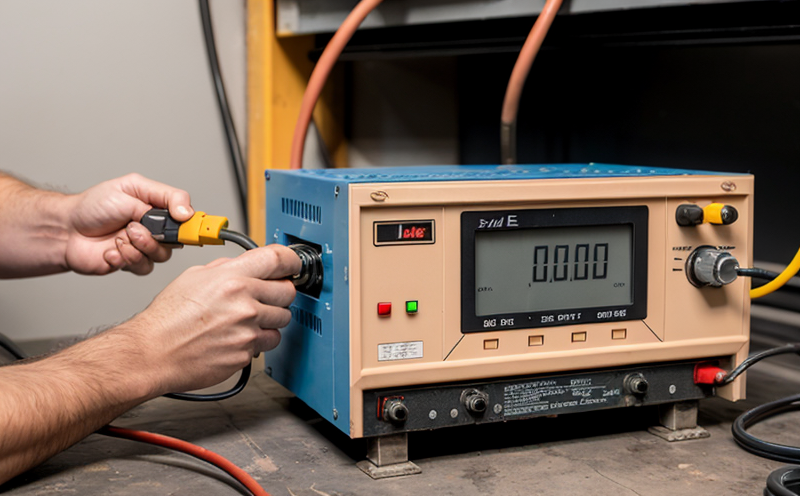JEDEC JESD22-A104 Die Temperature Cycling Electrical Testing
The JEDEC JESD22-A104 standard is a critical specification for the evaluation of semiconductor devices, particularly focusing on the die-level electrical and functional testing. This service ensures that devices can withstand extreme temperature variations without compromising their performance or integrity.
Die-level testing at the JESD22-A104 standard involves subjecting individual dies to a series of thermal cycles designed to mimic real-world operating environments. The primary goal is to identify any potential weaknesses in the die structure, interconnects, and solder joints that could lead to reliability issues down the line.
The testing process begins with thorough preparation of the specimens, ensuring they are representative of the final product. This includes cleaning the dies, applying appropriate thermal paste or adhesives if necessary, and mounting them in a suitable holder for testing. The die is then subjected to a series of temperature cycles ranging from -40°C to +125°C, with dwell times at each temperature point designed to simulate typical operational conditions.
During the test, electrical signals are applied to assess the device's functionality under these extreme conditions. This involves monitoring key parameters such as leakage current, voltage levels, and resistance values. The data collected is compared against baseline specifications provided by the manufacturer to determine whether the die meets quality standards and operational requirements.
The results of this testing are crucial for ensuring that semiconductor devices can operate reliably in various applications, from automotive electronics to consumer devices. By identifying and addressing issues early in the development process, manufacturers can improve product reliability and reduce field failures.
Thorough documentation is provided throughout the testing process, including detailed reports on each die's performance during the temperature cycles. This information helps quality managers make informed decisions about production processes and material selection. Compliance officers also benefit from this data when ensuring adherence to industry standards and regulatory requirements.
Applied Standards
| Standard | Description |
|---|---|
| JESD22-A104 | The JEDEC standard for die-level temperature cycling tests. |
| ASTM E2583-13 | American Society for Testing and Materials' standard on environmental conditioning of electronic components. |
Industry Applications
- Automotive electronics: Ensuring reliability in harsh environments.
- Consumer devices: Improving product longevity and performance.
- Medical equipment: Guaranteeing consistent operation under varied conditions.
- Telecommunications: Enhancing the durability of critical components.
International Acceptance and Recognition
- The JESD22-A104 standard is widely accepted by leading semiconductor manufacturers globally.
- This testing procedure is recognized in international standards such as IEC 60754-3 for electronic components.





